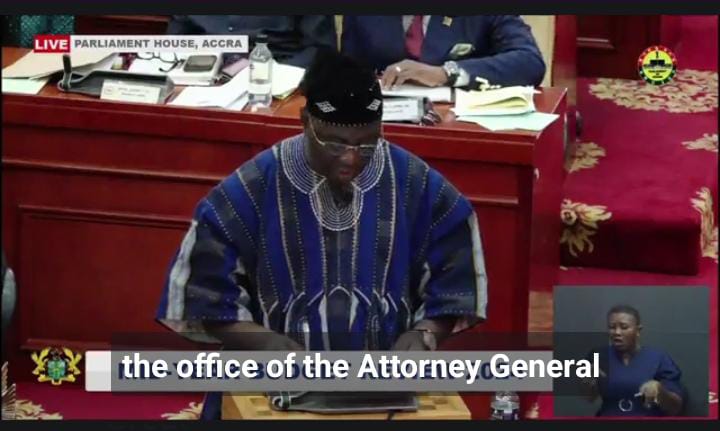adverts
2024 Mid-Year Budget Review: Gov’t allocates GHC5.4 billion to strengthen LEAP and other social welfare programmes- Finance Minister
In a bold move to enhance the social welfare of its citizens, the Ghanaian government has allocated GHS5.4 billion to bolster key social programmemes, including the Livelihood Empowerment Against Poverty (LEAP) programme, the National Health Insurance Scheme (NHIS), and the school feeding initiative. This substantial financial commitment was announced by Finance Minister Dr. Mohammed Amin Adam during the mid-year budget review presented to Parliament on July 23, 2024.
Dr. Amin Adam emphasised the government’s unwavering commitment to improving the quality of life for all Ghanaians, particularly the nation’s most vulnerable populations. “To reduce the burden on the vulnerable, we have disbursed GHS5.4 billion to support LEAP, the School Feeding Programme, the Capitation Grant, and NHIS since January 2024,” he stated.
A significant portion of these funds will be directed towards the LEAP programme, which provides cash transfers to the poorest households in the country. Over the years, LEAP has been a crucial tool in alleviating poverty and improving living standards. The additional funding is expected to expand the programme’s reach, enabling more households to benefit from this vital support.
adverts
The school feeding programme, designed to improve the nutritional status of children in public basic schools, will also receive a significant boost. Proper nutrition is critical for children’s physical and cognitive development, directly influencing their educational performance and overall well-being. By enhancing the school feeding programme, the government aims to combat child hunger and promote better educational outcomes across the country.
Additionally, the National Health Insurance Scheme (NHIS) will benefit from the new funding. The NHIS is a cornerstone of Ghana’s healthcare system, providing essential health services to millions of citizens. With this infusion of funds, the government aims to strengthen the scheme, ensuring that more people can access quality healthcare without facing financial hardship.
Dr. Amin Adam highlighted the broader economic context within which these social investments are being made. Despite the challenges posed by global economic uncertainties, he said the government remains committed to prudent fiscal management and strategic investments in social infrastructure. “Despite the global economic headwinds, our government remains steadfast in its commitment to fiscal discipline and social investment. We believe that strategic spending in social protection programmes is crucial for fostering inclusive growth and building a resilient economy,” he stated.
The Finance Minister also shared positive developments in the country’s economic performance, noting that Ghana’s economy grew by 4.7% in the first quarter of the year, surpassing initial projections. He attributed this growth to effective policy measures and robust economic management. Dr. Amin Adam also highlighted progress made in stabilising inflation and the exchange rate, which has brought relief to businesses and households. Improvements in these areas are critical for maintaining economic stability and creating a conducive environment for investment and growth.
In conclusion, Dr. Adam reaffirmed the government’s dedication to enhancing social welfare programmes and ensuring sustainable economic growth. “Investing in social protection programmes is not just about supporting the vulnerable; it is about building a stronger, more resilient nation. Our focus on fiscal discipline and strategic investments will continue to drive Ghana’s growth and development,” he asserted.
The mid-year budget review underscores the government’s comprehensive approach to economic stabilisation and social welfare, reflecting a strong commitment to improving the livelihoods of all Ghanaians.


